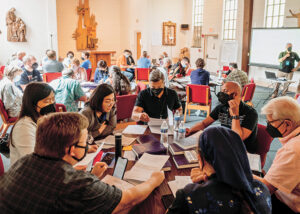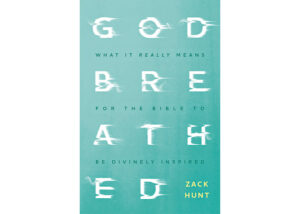I once heard a story about the influential biblical scholar Brevard Childs. A student asked him how to become a better interpreter of the Bible. Childs’s response, as it was told to me, was become a more profound person. Now perhaps some arrogance could be read into that statement but I think there is an important insight to consider here. Around the time I heard this quote I was attending a doctoral level seminar in biblical theology. Part of the course included presenting various forms and methods of interpretation (biblical criticisms). As we wrestled with these approaches and attempted to apply them to the biblical text a simple realization emerged that no method in itself would produce profound insights. In fact an interpretive method is more the result of perceptive, curious, and rigorous reading rather than tool for reading. At some point a scholar will have latched onto a unique or engaging insight or observation when viewing the text. The scholar will have then explored and developed the insight rather than first developing the method which could yield and insight. Most of the interpretative methodologies came down to a question of what one was going to privilege in their observations. Some felt the structure of syntax and grammar in the text was the best path. Others privileged an understanding of the cultural context behind the text. Still others thought meaning was already formed in the reader prior to the text. And of course methods and approaches continue to multiply.
In no way do I want to deny the value and insight that has been gained from these approaches but I do want to make the case that these methods begin to fail as soon as they are detached from the basic curiosity and inspiration the formed them. This was evidenced as we in our seminar attempted to apply our methods in the seminar. For the most part the result of our applications proved boring and predictable. In contrast to this experience I became increasingly aware of how moved and inspired I could be by readings of the Bible that came from a variety sources. I encountered the undeniable integrity and honesty from musical artists as diverse as David Bazan, Sufjan Stevens, and Johnny Cash. I faced the stark challenge to my traditional readings that came from atheist philosophers like Slavoj Zizek and Alain Badiou. I was moved by the novels of Dostoevsky and the poetry of Rilke. I was humbled by the simple and beautiful insights that emerged out of worship in a struggling in church in downtown Hamilton. It began to feel like the word of God could come when I least expected it. All these experiences in turn began to shape the perspective and form the way I would then return to the Bible.
I think Childs’s statement remains relevant though perhaps in need of some modifications. At the very least become a profoundly curious or experimental person. Do not simply trust a method of reading the Bible (and we all have them) as though meaning is some mineral awaiting extraction. Let the Bible form a horizon of engagement and conversation within ourselves and with each other and the world. We confess that the Bible forms a primary place in our faith community. And if you find the Bible boring you may want to at least stop to ask if the accusation is misplaced.





